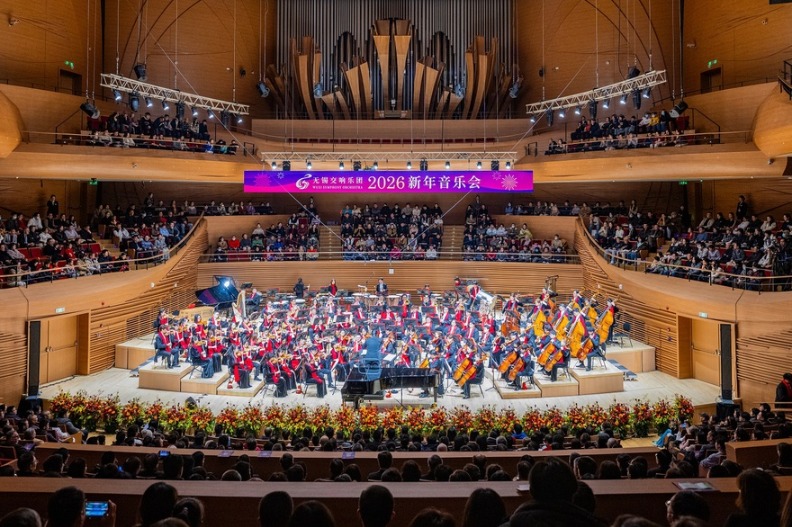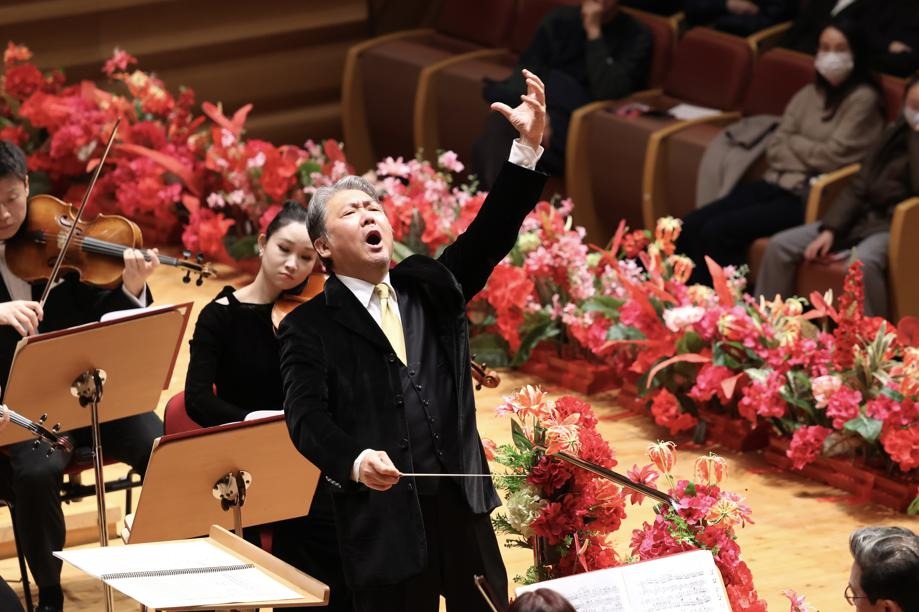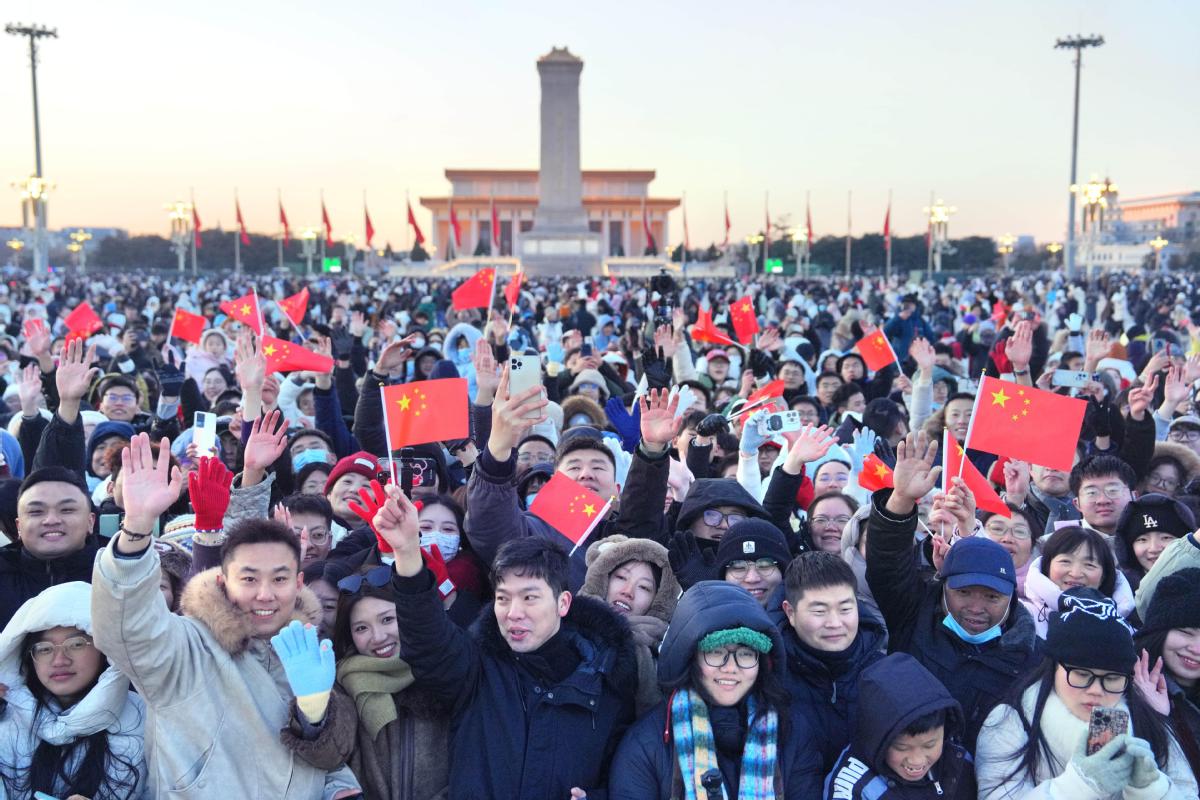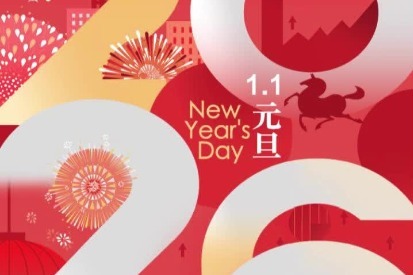Cutoff scores surge in postgraduate exams
Candidates in some disciplines face fierce rivalry despite applicants decline

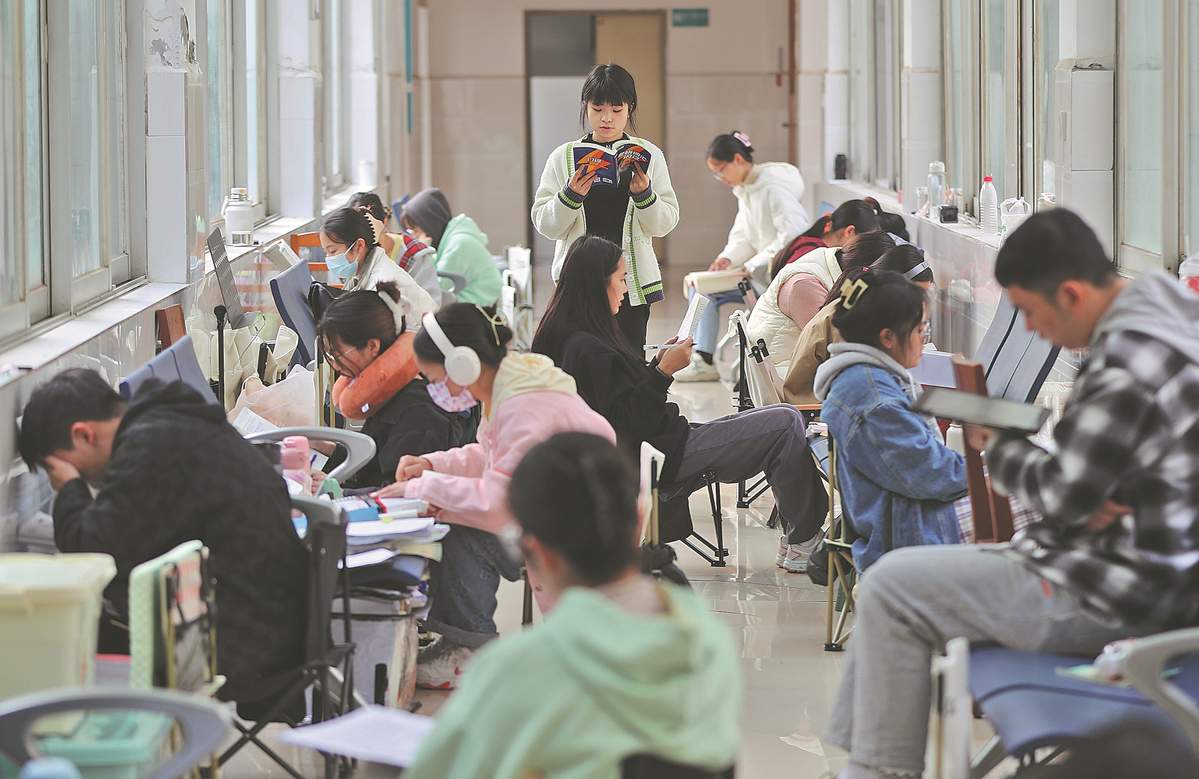
The cutoff scores for several disciplines in the 2024 postgraduate entrance exams have risen despite the number of applicants for the exam declining for the first time in nine years, according to the latest report of education consultancy MyCOS.
The number of applicants for the postgraduate entrance exam this year fell by 7.6 percent year-on-year to 4.38 million, the Ministry of Education said last year.
However, data released earlier this month show that cutoff scores for disciplines such as philosophy, history, sciences, medicine and physical education have increased, reflecting a continued intense competition in the exam.
About one out of every four candidates who take the exam will be admitted, according to the annual report on the exam released last week by New Oriental's College Student Learning and Development Center.
Chen Xi, a senior student at Beijing Union University, said the cutoff for the postgraduate computer science major he applied for increased by 60 points compared with last year.
Although the number of applicants dropped this year, students who took part in the exam are still competitive because many of them were taking the exam for the second or third time, Chen said.
Graduates who failed to take the exam during the COVID-19 pandemic also joined the competition in 2024. "They are more experienced and well-prepared than me," Chen said.
The highest proportion of undergraduates who chose to retake the postgraduate entrance examination in 2022 were medical students, reaching 9.6 percent. Next were law students at 8.8 percent, followed by students in economics and literature.
About one-third of the 30 computer science majors in Chen's class participated in the postgraduate entrance examinations, while the rest intended to immediately find a job as their major focused more on practical application.
Only three of the 10 candidates in his class made the second round of the exam, and Chen is the only one who will be interviewed by his top preference — Sun Yat-sen University in Guangzhou, Guangdong province.
Chen said although seven of the 10 candidates for the interview will be finally enrolled, he still felt a lot of pressure because he heard that the quota for the academic master's degree had been squeezed amid the country's changing emphasis on a professional master's degree.
In addition, some of his competitors have been studying in Sun Yatsen University for a bachelor's degree. "They are exposed to more information and have more advantages in the interview section."
Chen did not give up other options in case he failed the exam. Last week, he took part in a job fair at Beijing Normal University and submitted his resumes to about 10 companies, including technology giant Huawei.
"I found that a master's degree is needed for most of the enterprises on site," Chen said.
"I hope to accumulate more knowledge and grasp more skills during another three years at the university," Chen said.
Given the fierce competition of the current job market, Chen said he would apply for the examination for civil service after achieving a master's degree.
Shi Weixin, a senior student majoring in big data at Beijing Union University, didn't reach the cutoff score of the university where she applied for postgraduate studies.
"I will not prepare for the exam for another year but I'm determined to find a job or seek an internship," she said, adding that State-owned enterprises and internet companies are her top preferences.
Several universities have issued letters in the new semester urging graduates in 2024 not to solely focus on pursuing further education or taking exams for government-related positions.
In February, the employment and entrepreneurship guidance center of Zhejiang Sci-Tech University stated in an open letter that students should voluntarily take the first step in job hunting.
Students are encouraged to actively respond to the national call of engaging in employment opportunities in small and medium-sized enterprises or grassroots positions such as rural teachers or those in western areas, the letter said.
- China reports 20% rise in inter-regional trips on first day of New Year holiday
- China welcomes New Year in style
- Shanghai park holds ceremony for newly-arrived African penguin chick
- Yearender: Xi leads China through a pivotal 2025
- Tianjin University unveils initiative aimed at developing innovative leaders
- Nanjing Massacre survivors decreases to 23

















